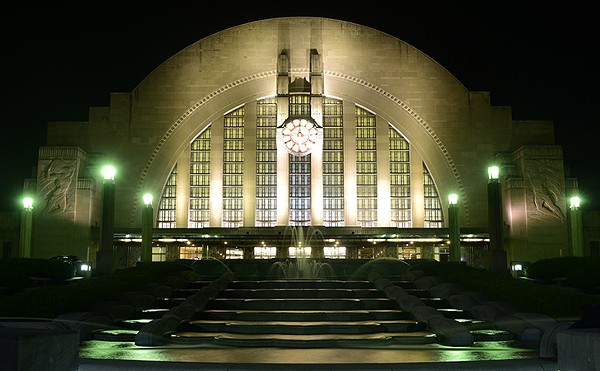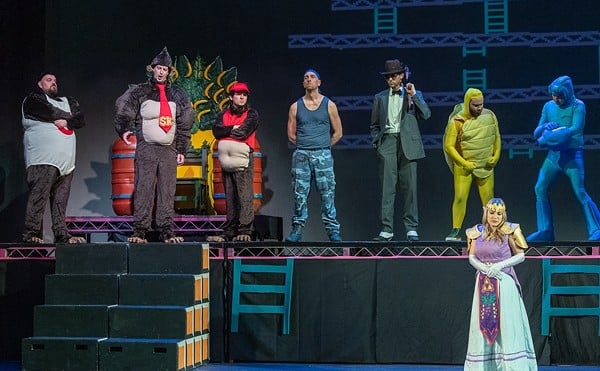|
Poets have been telling the story of the Cornish knight Tristan and the Irish princess Isolde since the Middle Ages. Composer Richard Wagner put their love story to music in his influential 19th-century opera, which inspired German philosophers to construct theories about life and sexual desire.
All that's left is for journeyman director Kevin Reynolds to make a lackluster, teen-friendly movie.
Reynolds' sweeping costume romance keeps the basic plot recognizable. Isolde (Sophia Myles) is a healer and an expert on herbs. Her mother, the Irish queen, has died and Isolde rebels against her warrior father.
Tristan (James Franco) is a young, brave knight who watched his parents die in an attack by Irish warriors. Lord Marke of Cornwall (Rufus Sewell) adopted Tristan, and the boy grew into one of Arthurian-era Britain's bravest knights.
Just as the ancient poems say, Isolde discovers Tristan badly injured and heals him back to life. The young man owes her everything and pledges his undying love.
It helps that she's also beautiful with blue eyes and ringlets of long, blonde hair.
But Isolde is soon betrothed to Tristan's uncle, Lord Marke, as part of a truce between the warring Irish and English peoples. Everyone knows that the story ends tragically for the two lovers, but what happens in the film is a case of poor revisionism.
For Reynolds, doomed love in the Middle Ages requires noisy sword battles, dusty secret passageways beneath castle walls and armies constantly on the attack. Love, no matter how handsome the participants, is not busy enough to sustain a little epic like Tristan & Isolde.
Love and honor are discussed in the film but in no special order. Actually, honor takes preference if only for the fact that Sewell and Franco are more believable as father and son than Franco and Myles are as star-crossed lovers. They have the look but lack the spark.
Franco is a twentysomething actor with enough smokiness and a sullen personality to stand apart from his equally fit and handsome peers. He's played numerous supporting roles in disposable movies and is best known for his background part in the Spider-Man movies, a moody counterpoint to Tobey Maguire's upbeat hero.
Reynolds puts Franco in the spotlight as a romantic leading man, but Tristan & Isolde screenwriter Dean Georgaris grants Franco little chance at being passionate. Action fights require most of his attention. He's on horseback more than with the supposed love of his life.
British actress Myles is slightly more successful than her counterpart when it comes to emoting aching passion, only because Reynolds and Georgaris grant her a break from swordplay. A veteran of British TV series and pop action movies like Thunderbirds and Underworld, she gives fiery speeches on love and devotion, smothers Tristan with kisses and offers longing looks capable of melting most beating hearts. She does what she's asked except ignite a connection with Franco that makes all the period details and lingering landscape images worthwhile.
With its emphasis on action and political intrigue, Tristan & Isolde shares much in common with a recent series of books by Rosalind Miles that re-introduces Isolde to new audiences as period fantasy. Reynolds' film fails to push its classic story to stylistic extremes like director Baz Luhrmann's Romeo + Juliet, and it's not nearly as sexy as Franco Zeffirelli's version of Shakespeare's tale of doomed love.
To Reynolds' credit, Ireland looks every bit the magical island with its rocky cliffs and windswept beaches, and Lord Marke's stone castle is impressive. The lone period gaffe is the complete lack of muddy faces.
Franco looks like someone fresh from the salon. Myles' lips are perfectly colored. Her eyebrows and eyelashes are pinpoint beautiful. They might wear clothes that evoke ancient Britain, but their hair and face are pure 21st century. It's as if a little smudge would ruin the lovemaking.
Tristan meeting Isolde is a great love that transcends church, society and years of mistrust, hatred and war. The poems about their love are timeless. The opera made music history.
As far as the movie goes, two out of three ain't bad. Grade: C-





